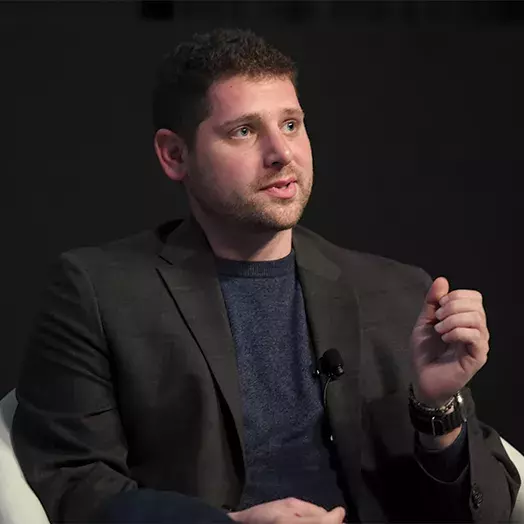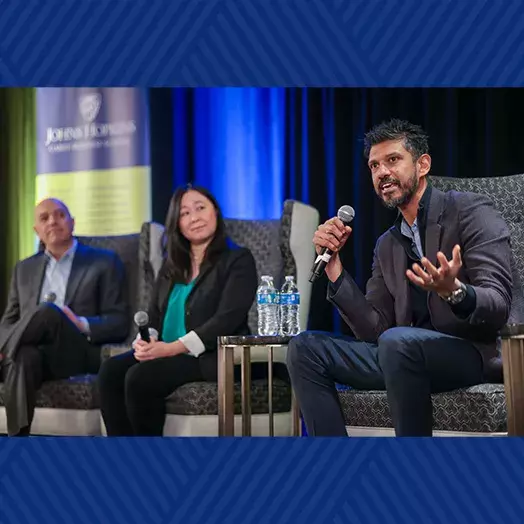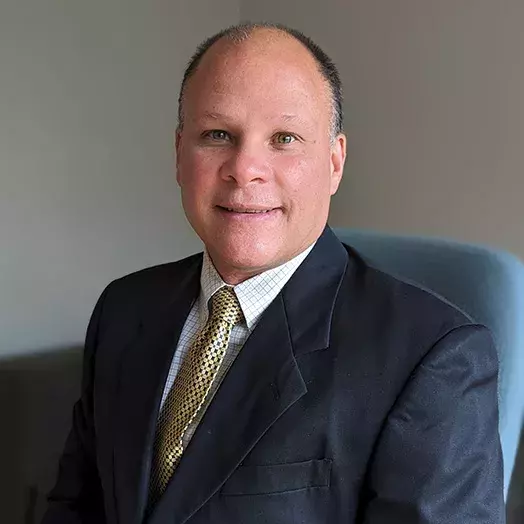Zach Greenberger (MBA ’21) combines personal purpose and a professional passion.

What drives Lyft’s chief business officer?
Zach Greenberger’s energy comes through a video call loud and clear. He’s one of those people whose enthusiasm is contagious. That’s probably how he’s four months into a C-suite role at Lyft after just four years with the company, on the heels of working for Elon Musk at Tesla. The New Jersey native was a few years out of undergrad, working for the electric car company, when he decided to start business school.
“I started to think, ‘What am I really passionate about? What do I want to do?’” Greenberger (MBA, ’21) said from his San Francisco office. “I always knew I wanted to work in business, but I didn’t know what I wanted to do. I knew I loved supply chain.”
His initial interest, he said, was about getting products into people’s hands. But as he learned more about supply chain, he started setting the stage for his career. He’d come out of college working for Gexpro, an electrical supply company in the construction industry. From there, he was in strategic supply sourcing at IBM. That’s where he got into innovating. And innovating got him into everything. Fifteen patents, for example, supporting supply chain initiatives with geo-based and micro-location technology.
The big break, Greenberger said, was getting the chance to lead indirect supply chain at Tesla. Besides the opportunity to work directly with Musk—“which was very inspiring”—he found himself in an environment that challenged him to up his game.
“I think what pushed me was the sheer level of competence I was witnessing and wanting to be able to converse, innovate, and create with people who are smarter than me,” Greenberger said. Now that he knew what he wanted to do, he wanted to make sure he was using all the resources he possibly could. So he started the part-time Flexible MBA program at Johns Hopkins Carey Business School.
High gear
“People always say, ‘Did you need an MBA to get where you are?’ That’s not the right question,” Greenberger said. “The right question is, ‘Is there knowledge that you need to have that you don’t today?’ I wanted to expand my network, improve my executive presence, get better at managing up and down, and be able to context-switch in conversations. It was about having the knowledge base to be successful.”
Energy and enthusiasm might have been enough to keep him moving, but knowledge and network is how he got to Lyft. He followed a mentor there, and once again took on supply chain. His team was managing all the company’s procurement, including cloud infrastructure and its software portfolio. The innovative side of him kicked in when they started talking about the importance of platforms for consumers, and how to integrate and build leverage that expands opportunities for all stakeholders. The next step—creating relationships and partnerships—is where things really took off.
“Then it became supply chain and business development and partnerships,” Greenberger explained. “Partnerships are core to marketing. Marketing is important to partnerships. It started to move into this broader ecosystem. It’s highly unconventional to bring these teams together, but for Lyft, it made a lot of sense.”
Ten years into his professional life, all of that was in his wheelhouse. Greenberger had become the chief business officer for the rideshare giant.
Boundless curiosity and relentless advancement
“There are basically three principles I’ve always operated on,” Greenberger said. “One is to be empathetic, kind, and always be seen as someone that’s easy to work with. Two is to always innovate and seek out new opportunities that you think exist for the business – and hold your teams accountable to those opportunities. And the third is to be brutally honest with yourself and your stakeholders. Be the person that is seen as someone who is going to give it to you as it is.”
Those principles are at the core, Greenberger said, of his success so far. They’ve helped him avoid a “fake it ‘til you make it” approach, allowing him instead to acknowledge when he doesn’t know something, stay hungry to learn it, and empower his team to help him. It’s also built trust with his team. But they’re not the only elements. A sense of adventure and a willingness to explore, he says, leads to the right outcomes. It all contributes to his sense of purpose, which makes his work rewarding.
“If you have the privilege of working for a mission-driven company that fuses your personal purpose with the purpose of the business, it makes it a really special working environment,” he said. “One of the keys to employee satisfaction is being able to connect to the mission of the business. It makes everything outside your work life happier.”
What’s next in tech
Greenberger has a big plan for his role in the future of tech in transportation, and it’s already off the ground. What’s next, he says, is giving the customer an exceptional experience while increasing the value for advertisers and drivers at the same time. To do that, his team is designing what he describes as a first-of-its-kind, end-to-end advertising network tied to the transportation ecosystem.
“We’re talking about contextual and relevant content that connects to your transportation journey,” he explained. “These products are designed to enhance the driver and rider experience while creating value for advertisers through a highly captive and engaged audience.”
Though other companies are working on similar technology, Lyft is rolling out its version of this service now, and Greenberger says customers will start seeing it more in the next six months.
Learn more about the flexible MBA program at Carey Business School.


